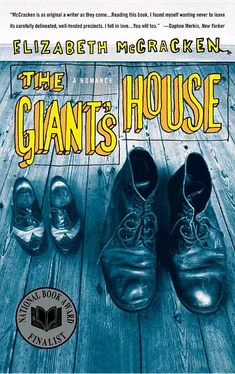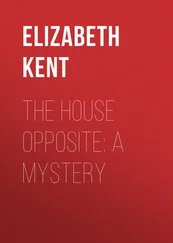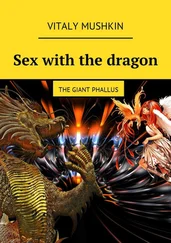Below us, New York went on as usual. It was so sunny even the dirt looked clean and monumental. The East River sparkled like some big scaled animal turning over and over in bed. “Where’s the hotel?” James wondered, and Pat Anderson went over to help him locate the neighborhood.
“Quite a kid you got there,” a reporter said to me. He was one of those men who seemed to have walked to the edge of adolescence, looked over, and then stepped back in horror. Thin and high-voiced and baby-faced, as short as I was. I wasn’t used to looking at a man at eye level. “How much did he weigh at birth?” he asked.
“I’m not sure. An ordinary weight. Nine pounds, perhaps.”
“Eats a lot?”
“Not really. A little more than average. Not much.”
“What’s his father do?”
“I don’t know.”
“You’re not an over-proud mother, that’s for sure,” the reporter said to me.
“I’m not a mother at all,” I said. “I’m James’s chaperone.”
“Aha!” said the reporter. “What’s your name? I’ll make you famous.”
“Peggy Cort.”
“Miss or Missus?”
“Miss.”
“Even better,” said the reporter. He stopped writing. “Whatcha doing tonight?”
This so flabbergasted me I couldn’t think of what to say.
“Don’t look so scared,” the reporter said. “You want to grab a sandwich or not?”
“No,” I said. “Thank you.”
He shrugged. “Bigfoot over there your boyfriend or something?”
“Mind your own business,” I said.
“Yeah, the tall guys get all the luck. Even the short girls like ’em better. Well,” he said, “he’s not the tallest this building’s ever seen. King Kong’s still got the record.”
Then several reporters hushed him, and the wind rushed in, too, lifted up the ex-mayor’s hat, and deposited it in the wire nets meant to discourage suicides.
James loved public spaces. I did, too, of course; it was one of the reasons I became a librarian. But we liked them for different reasons. I loved buildings where anyone was welcome, where no one could throw you out, wonder whether you belonged. And while I was not an admirer of people in the specific, I liked them in the abstract. It is only the execution of the idea that disappoints. I have always loved strangers a good deal more than my own family, will be politer and friendlier on a bus or in an airport than I am at a dinner table. You have nothing to lose with strangers: they will like you or not and most likely never think of you again, and conversation becomes that much easier. Love and hate are not on the menu.
James loved public spaces for this reason: they were big. Even my small-town public library had ceilings high enough that he’d never have to worry. Town hall was the same, and the high school, and some stores and restaurants.
New York was filled with such places. Hotel lobbies, train stations, museums, department stores — it was as if, having used up so much ground outside, they’d decided they needed wide inside spaces. Outdoors it was all claustrophobia; inside, atriums and staircases that made you look up to see where they ended.
We took them slowly, of course. James was right: he knew when he got tired and said so, and we taxied back to the hotel and rested. We had to tell the desk clerk not to let up visitors. Then we’d go off again, to the Metropolitan Museum, the Frick, to Macy’s and Altman’s. “Go see a Broadway show,” the bellhop told us, though of course James wouldn’t have fit. He said he wasn’t interested. It’s only now I realize that we could have called a theater and asked them to figure something out. James was a celebrity; they would have done it. Of course, I would have pitied whoever sat behind him.
Pat Anderson came to the hotel with clippings every morning. CIRCUS GIANT BUSY ON FIRST DAY HERE, the Times headline said, and then, in smaller print, EATS NORMAL-SIZE MEAL. There was a picture of the ex-mayor peering up at James through one of the Empire State Building telescopes.
The reporters fell off after the first couple days, but the crowds continued. It got tiresome, though people were always nice — when we stopped to get a hot dog off the street, a stranger would always rush up to buy Jim’s.
“Just one?” they’d say in disbelief. “Have a couple, you must be hungry! No? Just a snack, huh?”
The circus manager had a thick southern accent. “Ease as pie,” he said. “For the p’rade, we’ll drive you ’round the rings. Then, ’bout midway through, you’ll come out by yourself. Wanna walk or ride?”
“Ride.”
“Ride’s good. Bigger surprise when you step off. Ringmaster’ll ’nounce you, ride in, step off. Leila rides with you.”
“Leila?”
“Smallest woman in the world,” said the manager. “That’s our story, anyhow. Jus’ stand there, the two you, wave, get back on the truck. Nothin’ to it. Ten minutes. Y’manage that?”
“I think I can,” James said.
The animals stank up the back of Madison Square Garden. Performers whirled around; their costumes were frayed this close up, and their faces bore little resemblance to the glamour of the program. Their teeth were bad, their skin was bad and paved with makeup. But they were nice, and impressed with James.
“You’re the real thing,” a clown said, looking up.
In a corner by the stairs, a thin woman painted at an easel. Another clown was sitting for her, in full makeup, a T-shirt, blue jeans.
“You gotta hurry up, Blanche,” he said. “I gotta get dressed.”
“Oh, you have plenty of time,” said the woman. Her voice was girlish and powdery. “Hold still.”
“I’m holding still maybe thirty fucking seconds more.”
“Well, promise to sit for me later.”
“Sure thing,” the clown said, standing up.
James walked over to the woman. “What do you do?” he asked her.
She was rubbing a brush clean with a white cloth. “I paint,” she said. “What do you do?” She put a huge straw hat on the back of her head, as if she’d just smelled the animals and had taken it as evidence she was in a meadow.
“I’m here, right now,” he said. “Appearing for the circus. But I paint, too.”
“ Do you,” she said, delighted. The clown she’d just been painting came running past her and pinched her bottom. “Good girl, Blanche,” he said. She smiled slightly and lowered her head. “What do you paint?” she asked James.
“Seascapes,” he said. “Still lifes.”
“Bowls of fruit,” she said.
“Not so far,” said James. “But I’ve never had one lying around to paint. Do you work for the circus?”
“No,” she said. “For myself. I don’t like bowls of fruit either. I paint clowns.”
“Nothing else?”
“No,” she said. “Clowns. They’re so innocent.” She turned the painting of the pinching clown around to show us. He looked sweet as a schoolboy. “They bring people so much joy.”
Then Leila, the Smallest Woman in the World, came out in a green-sequined dress with matching satin shoes. Whether she was in fact the world’s tiniest I didn’t know, but she was at least two feet shorter than me, Italian and glamorous, perfectly proportioned though stout and buxom. Even backstage of the circus I could smell her perfume, spicy vanilla set to low simmer.
“Jimmy Sweatt!” she said. “You gonna change for our show?”
“No, I’m fine.”
“Don’ get paint on your suit,” she said. “I’m Leila. This you know already.” She turned to me. “Hello. Don’ worry about your boy. Blanche is nice, only crazy.”
“I am not crazy!” said Blanche.
Leila smiled sweetly at me and adjusted her girdle. “Better get ready,” she said to James.
Читать дальше












